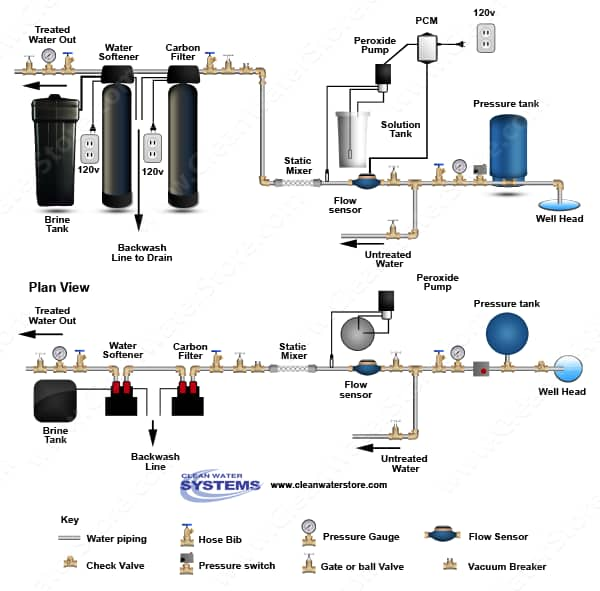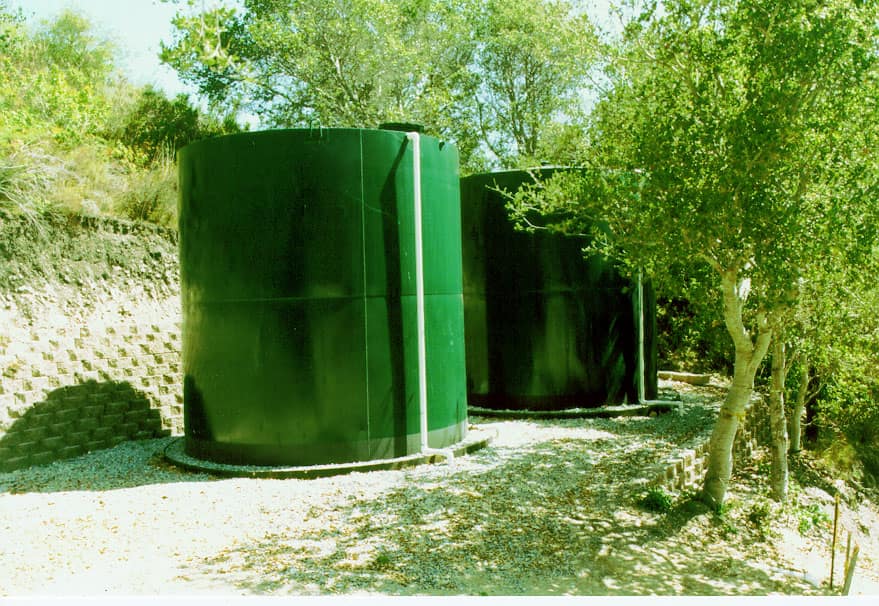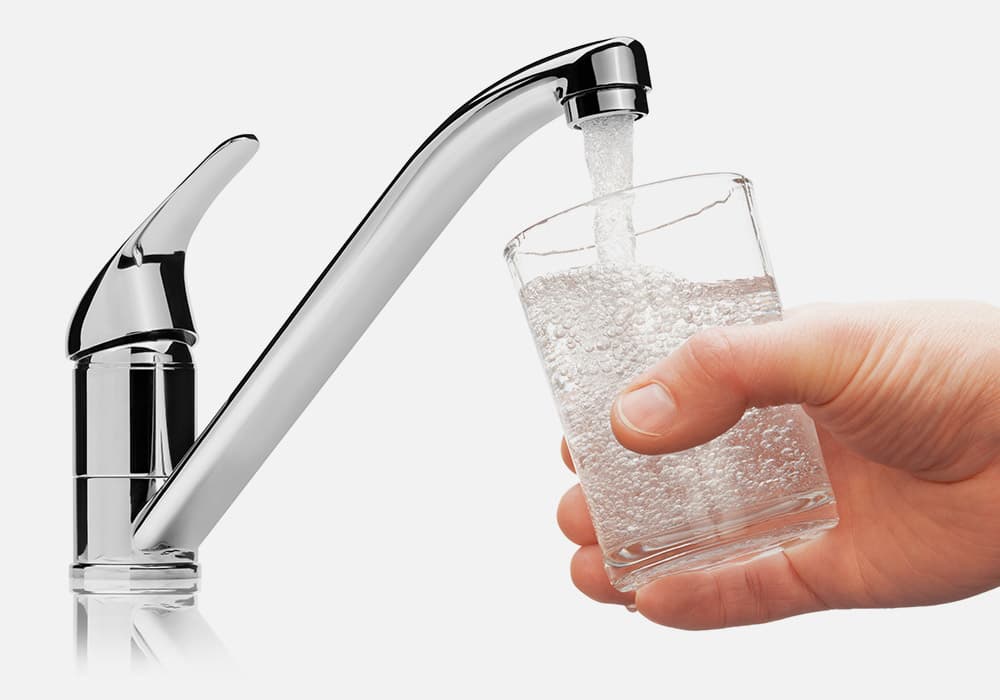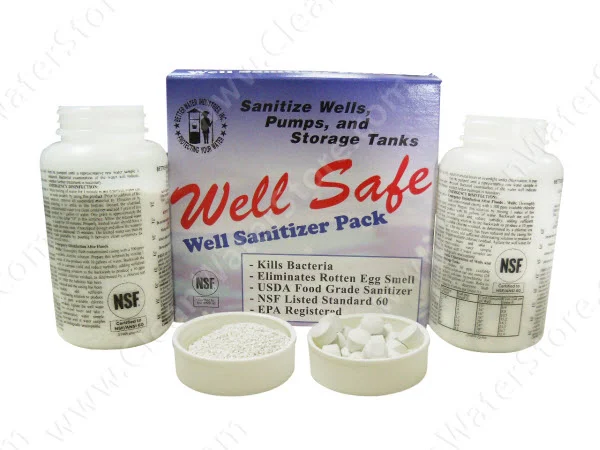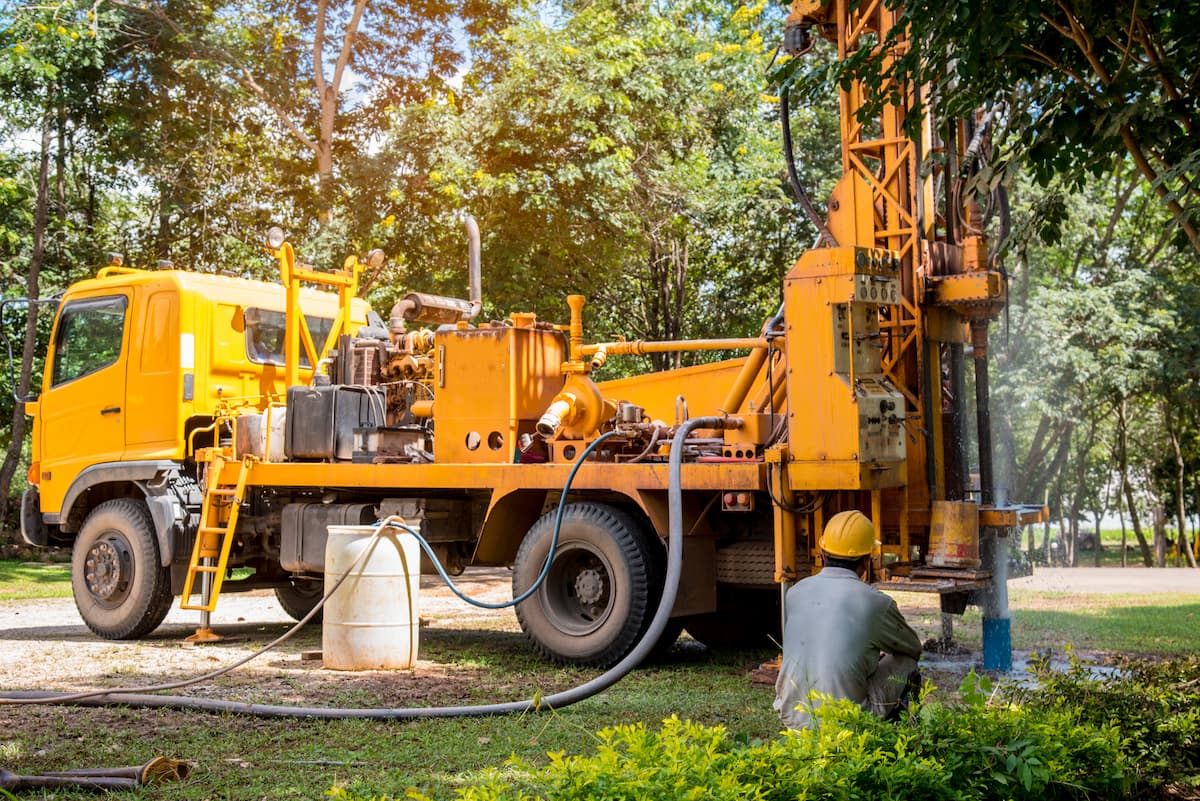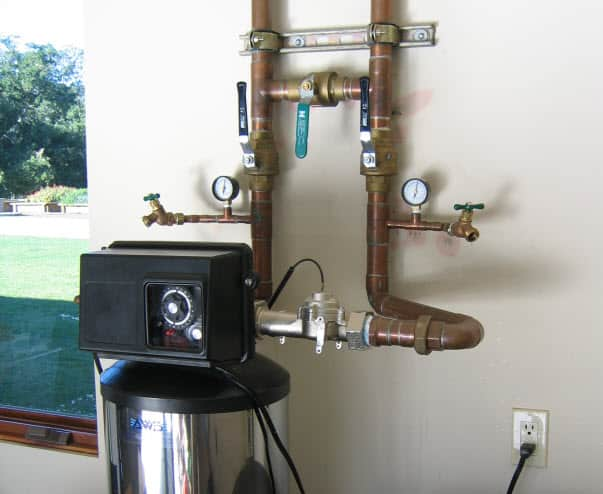Hydrogen Peroxide Water Treatment
Hydrogen Peroxide Water Treatment What is Hydrogen Peroxide Water Treatment?
Hydrogen peroxide water treatment is a natural purification system that utilizes hydrogen peroxide (H2O2) to effectively remove contaminants and pollutants from drinking water. This method stands out as a cost-effective and environmentally friendly alternative to traditional water treatment chemicals like chlorine dioxide and potassium permanganate. Hydrogen peroxide is a natural metabolite that excels at oxidizing pollutants, making it an ideal solution for both drinking water disinfection and wastewater treatment. By leveraging the powerful oxidizing properties of hydrogen peroxide, this treatment method ensures that your water is clean, safe, and free from harmful substances.
Understanding the Hydrogen Peroxide Water Treatment Process: Beginner's Guide
Do you need an eco-friendly and cost-effective way to purify your water? Consider hydrogen peroxide water treatment. This process is simple and easy to understand, making it an excellent option for beginners. When you know the basics, you are in a better position to reap all the rewards for your home.
Hydrogen peroxide is a clear liquid that is injected into your well water as it flows out of the well. When hydrogen peroxide is injected into water, a large amount of dissolved oxygen is released, and a strong oxidizing effect takes place. Odors are eliminated, and tannins can be oxidized. Additionally, hydrogen peroxide does not cause harmful gaseous release, making it a safer option for drinking water purification.
Why Hydrogen Peroxide is Better:
- Works faster than chlorine, so often no contact tank is required 2. Unlike chlorine, it will not leave a chemical residual in the water 3. Peroxide works over a wider pH range
Like chlorine, hydrogen peroxide is a strong oxidizer and can quickly eliminate odors. Unlike chlorine, however, hydrogen peroxide leaves behind no trace of chemical by-products.
Hydrogen peroxide converts hydrogen sulfide gas, and iron present to a solid particle which is then removed by a back-washing self-cleaning carbon filtration system. For many applications, no retention tank is needed, and any residual hydrogen peroxide will be effectively removed by the carbon filter.
If the rotten egg odors are excessive, a contact tank is recommended. This tank allows a few minutes for the peroxide to contact the water, ensuring the water is properly treated.
The actual treatment procedure is simple. Whenever the well pump turns on, a metering pump automatically inserts a tiny amount of hydrogen peroxide in front of the pressure tank.
The back-washing carbon filter system is installed after the pressure tank and filters the water. The result is clean, disinfected, and odor-free water throughout the home.
Benefits of Hydrogen Peroxide Water Treatment
Hydrogen peroxide water treatment offers a multitude of benefits, making it a preferred choice for many homeowners:
- Effective Contaminant Removal: It efficiently eliminates a wide range of contaminants and pollutants, including those responsible for the unpleasant rotten egg odor.
- Non-Toxic Solution: Hydrogen peroxide is a natural and non-toxic option that leaves no chemical residues in your drinking water, ensuring it is safe for human consumption.
- Cost-Effective: This method is effective and cost-efficient, providing a budget-friendly alternative to traditional water-treatment chemicals.
- Easy Installation and Maintenance: Hydrogen peroxide systems are straightforward to install and require minimal user intervention, making them convenient for everyday use.
- Versatile Application: Suitable for well water systems with high flow rates and various contaminants, hydrogen peroxide treatment can adapt to different water treatment needs.
How Hydrogen Peroxide Works
Hydrogen peroxide releases dissolved oxygen into the water, which helps neutralize the rotten-egg smell caused by sulfur bacteria and other microorganisms. The hydrogen peroxide injection system is designed to disperse hydrogen peroxide slowly and evenly into the water, ensuring thorough treatment throughout the water system. As hydrogen peroxide breaks down, it decomposes into harmless water and oxygen, making it a safe and effective solution for both drinking water disinfection and wastewater treatment. This process purifies the water and enhances its overall quality, making it safe for consumption and use.
Safety and Effectiveness
Hydrogen peroxide water treatment is a highly effective method for removing contaminants and pollutants from drinking water. Hydrogen peroxide can eliminate up to 99.9% of microorganisms and other impurities in water systems when used correctly. However, it is crucial to follow the manufacturer’s instructions and take the necessary safety precautions when handling hydrogen peroxide. Regular system maintenance and testing are also essential to ensure the system functions correctly and continues to provide safe, clean drinking water. By adhering to these guidelines, you can enjoy the benefits of a reliable and effective water-treatment solution.
Flow Sensor Systems Allow Hydrogen Peroxide Systems to Be Installed After Well
In some cases, it’s not practical to install the peroxide injection point near the well. Or perhaps you are on a shared community well and prefer to have the system right where the water enters the home. Hydrogen peroxide also effectively disinfects water pipes and eliminates biofilms that can develop on plumbing fixtures.
In this case, a flow-based system can be used. This type of system uses a flow meter to control the peroxide injection pump.
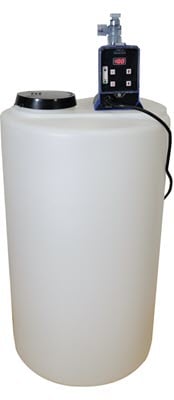
As soon as there is flow, the peroxide pump injects a small amount of hydrogen peroxide based on the speed of the water flowing through the pipe.
Proportionally fed hydrogen peroxide products offer owners a convenient way to inject hydrogen peroxide as the water enters the household plumbing system. They are very easy to set up and maintain.
Environmental Benefits
Hydrogen peroxide water treatment is an environmentally friendly solution that offers several significant benefits:
- Non-Toxic Decomposition: Hydrogen peroxide decomposes into water and oxygen, making it a safe and non-toxic solution for the environment.
- Aquatic Life Safety: It does not harm aquatic life or contaminate soil and groundwater, ensuring the preservation of natural ecosystems.
- Reduction of Harmful Byproducts: This method reduces the formation of harmful byproducts, such as trihalomethanes (THMs), which can pose health risks to humans.
- Minimized Use of Chemical Oxidants: Relying on hydrogen peroxide minimizes the need for other chemical oxidants, which can have negative environmental impacts.
- Clean and Safe Water Systems: Hydrogen peroxide helps maintain clean and safe water systems, reducing the risk of waterborne diseases and protecting human health.
By choosing hydrogen peroxide water treatment, you ensure the safety and quality of your drinking water and contribute to a healthier and more sustainable environment.
Why Choose the Clean Water Store for All Your Drinking Water Purification Needs?
We understand the importance of clean, safe water at the Clean Water Store. We offer a wide selection of hydrogen peroxide water treatment options to meet your specific needs. Our team of experts is available to answer any questions and help you find the perfect product for your home. Check out our store to get started.
Source:
https://wwwnc.cdc.gov/travel/yellowbook/2020/preparing-international-travelers/water-disinfection
https://www.ncbi.nlm.nih.gov/pmc/articles/PMC5055895/
Frequently Asked Questions (FAQs)
1. What does hydrogen peroxide do in water treatment?
Hydrogen peroxide is a powerful oxidizer. It breaks down contaminants like hydrogen sulfide (the smell of rotten eggs), iron, and tannins into solid particles that can be easily filtered out.
2. Is hydrogen peroxide safe for drinking water treatment?
Yes. When properly dosed and filtered, hydrogen peroxide is safe and leaves no chemical residue in the treated water. It decomposes into water and oxygen.
3. How is hydrogen peroxide added to well water?
A metering pump automatically injects a small amount of hydrogen peroxide into the water line whenever the well pump turns on or when flow is detected.
4. Do I need a contact tank with hydrogen peroxide?
Not always. Because hydrogen peroxide reacts quickly, many systems don’t need a contact tank. However, a contact tank can improve performance for extreme odor issues.
5. What happens to the hydrogen peroxide after treatment?
The carbon filtration system removes Any residual hydrogen peroxide, leaving clean, odor-free water.
6. How does this compare to chlorine treatment?
Hydrogen peroxide works faster, doesn’t leave chemical by-products, and is effective over a wider pH range—making it a cleaner, greener option than chlorine.
7. What kind of filter is used after peroxide injection?
A back-washing activated carbon filter is typically used to remove oxidized particles and any remaining hydrogen peroxide.
8. Is hydrogen peroxide treatment suitable for iron and sulfur removal?
Yes. It’s highly effective at treating iron and hydrogen sulfide by oxidizing them into filterable solids.
9. Can I install the system inside my home instead of near the well?
Yes. With a flow sensor-based system, you can install the hydrogen peroxide injector where water enters your home—even on shared or community wells.
10. How much maintenance is required?
Hydrogen peroxide systems are generally low-maintenance. You’ll need to refill the peroxide solution as needed and periodically check the injection pump and filters.


